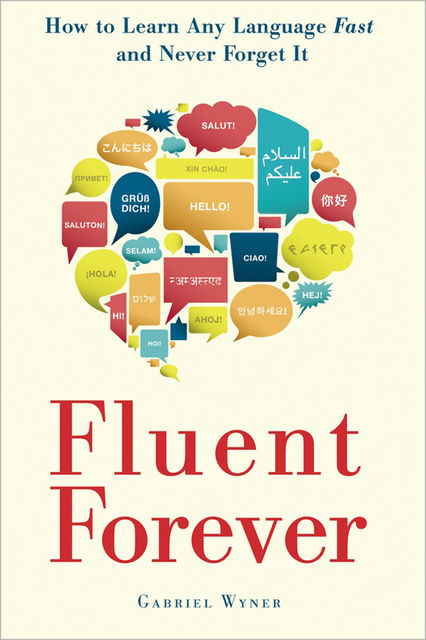Fluent Forever: How to Learn Any Language Fast and Never Forget It
- Aliya Sabyrhar citeratför 7 år sedanschool we learn things then take the test,
In everyday life we take the test then we learn things.
—Admon Israel - b9710090010har citeratför 9 år sedanLearn the top thousand words in your target language. Write out definitions and examples whenever you’re not entirely sure what a word means. About halfway through, you’ll find that you can understand a monolingual dictionary. Use it to help you learn the rest of your words.
3. Go back to your grammar book, skim through it, and grab any remaining bits of information you’d like.
4. Read your first book while listening to an audiobook. - Yuly Mendozahar citeratförra månadenThe third key, use spaced repetition systems (SRSs), came from language blogs and software developers. SRSs are flash cards on steroids. Based upon your input, they create a custom study plan that drives information deep into your long-term memory.
3) SRS
- Yuly Mendozahar citeratförra månadenNot only can a beginning student skip translating, but it was an essential step in learning how to think in a foreign language. It made language learning possible.
2) Don't translate
- Yuly Mendozahar citeratförra månadenmastering the sounds of a language, our ears become attuned to those sounds, making vocabulary acquisition, listening comprehension, and speaking come much more quickly.
- Yuly Mendozahar citeratförra månadenSingers learn the pronunciation of languages first because we need to sing
1) Learning pronunciation
- Yuly Mendozahar citeratförra månadenI encountered three basic keys to language learning:
1. Learn pronunciation first.
2. Don’t translate.
3. Use spaced repetition systems.Keys to Language learning
- Yuly Mendozahar citeratförra månadenI hope to enable you to visit the peculiar world of language learning. In the process, you’ll better understand the inner workings of your mind and the minds of others. You’ll learn to speak a new language, too.
- Yuly Mendozahar citeratförra månadenThe real challenge lies in finding a path that conforms to the demands of a busy life.
- Yuly Mendozahar citeratförra månadenStill, stabbing friends with pointy metal objects resembles language learning more than you might think. Your goal in fencing is to stab people automatically. You spend time learning the names of the weapons and the rules of the game, and you drill the proper posture, every parry, riposte, and lunge. Finally, you play the game, hoping to reach that magical moment when you forget about the rules: Your arm moves of its own accord, you deftly parry your friend’s sword, and you stab him squarely in the chest. Point
fb2epub
Dra och släpp dina filer
(upp till fem åt gången)


